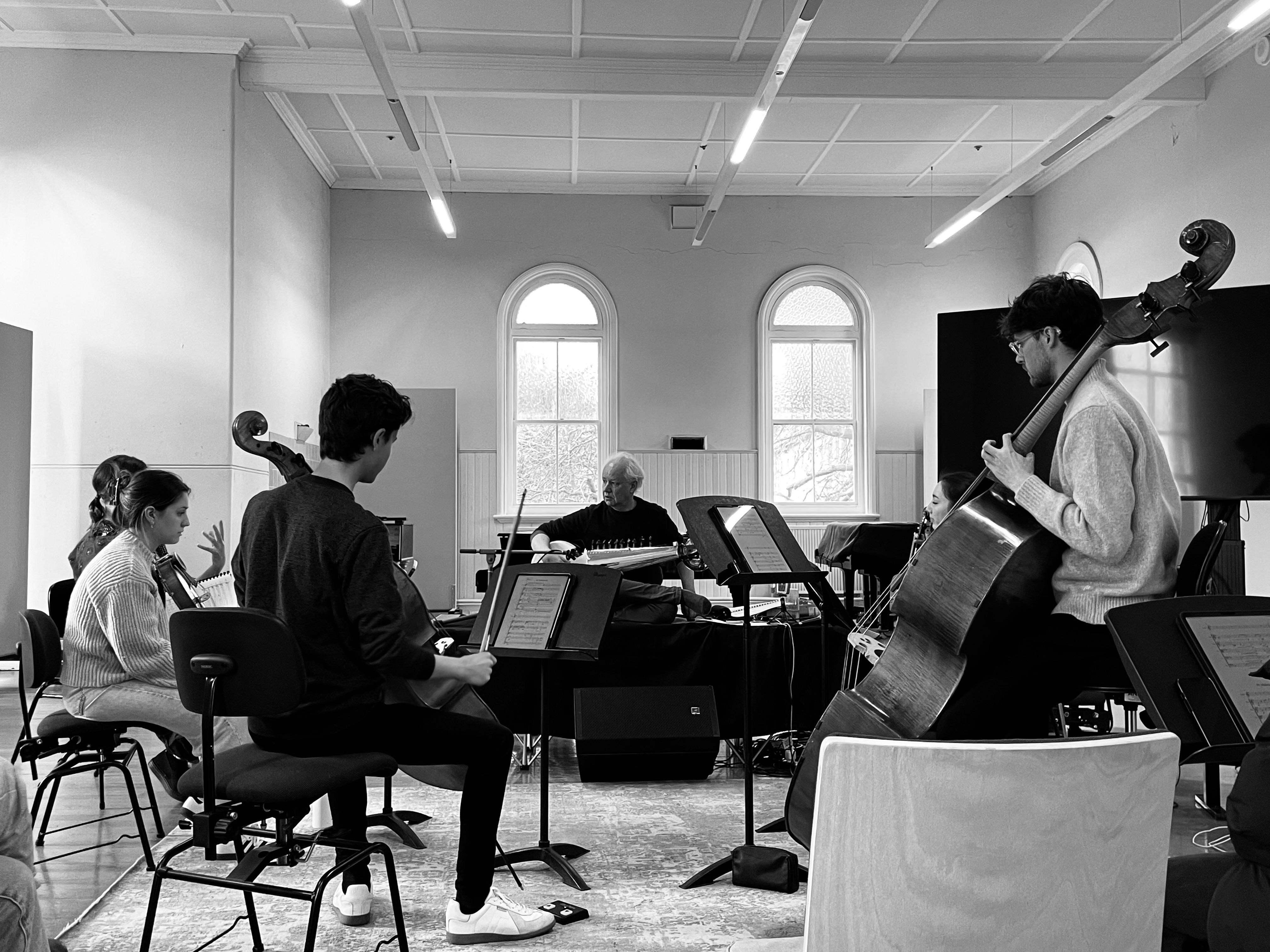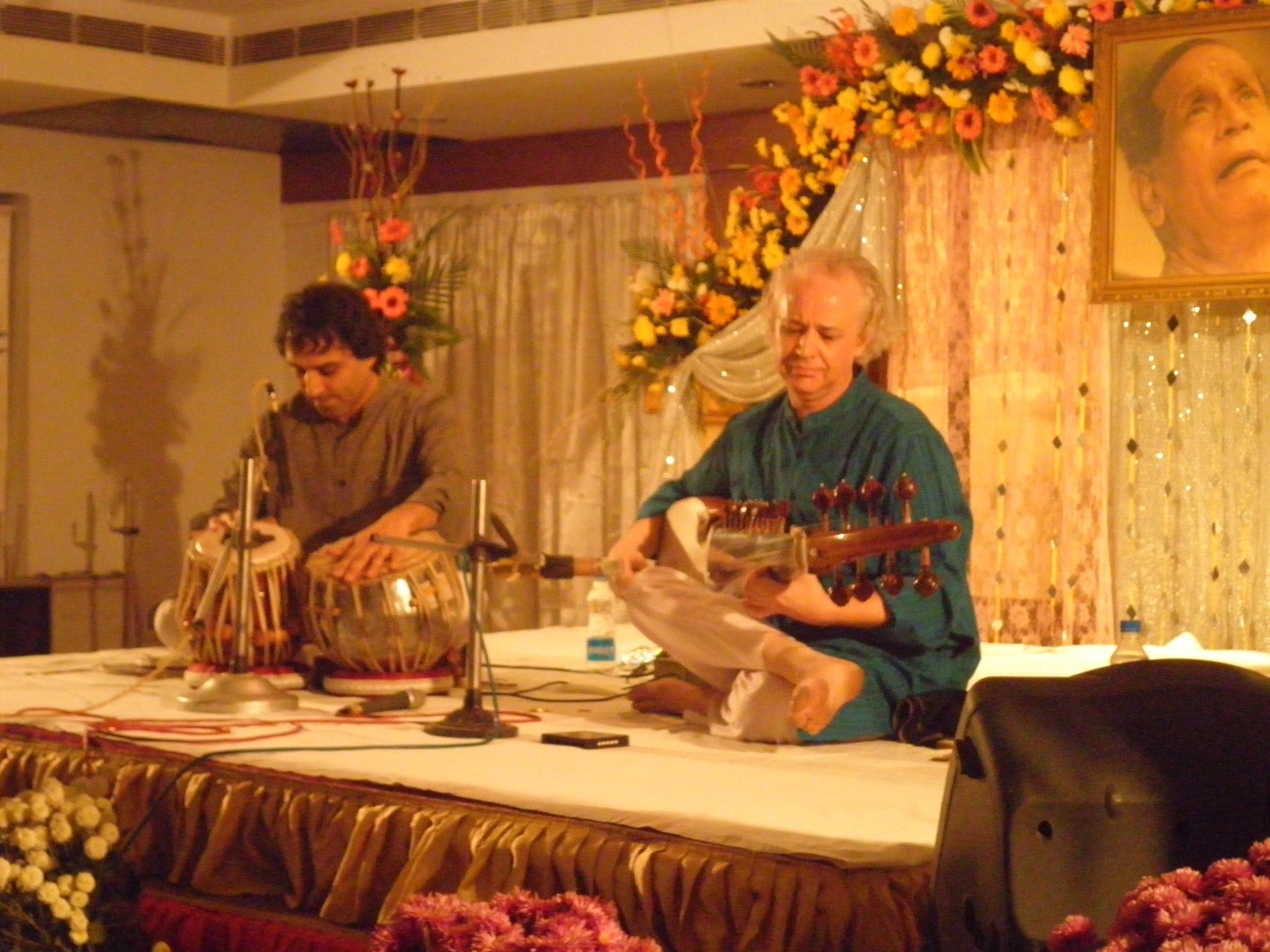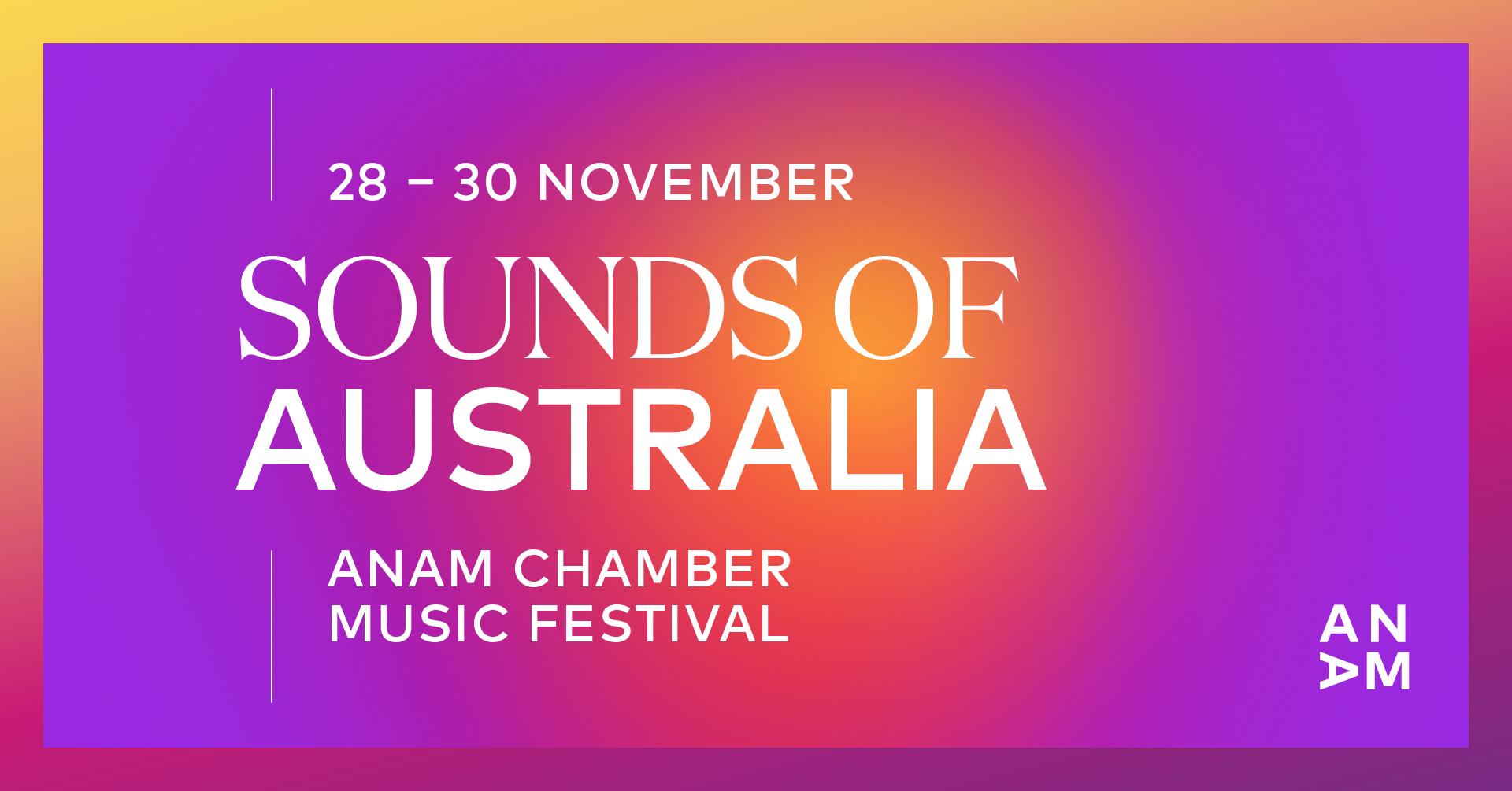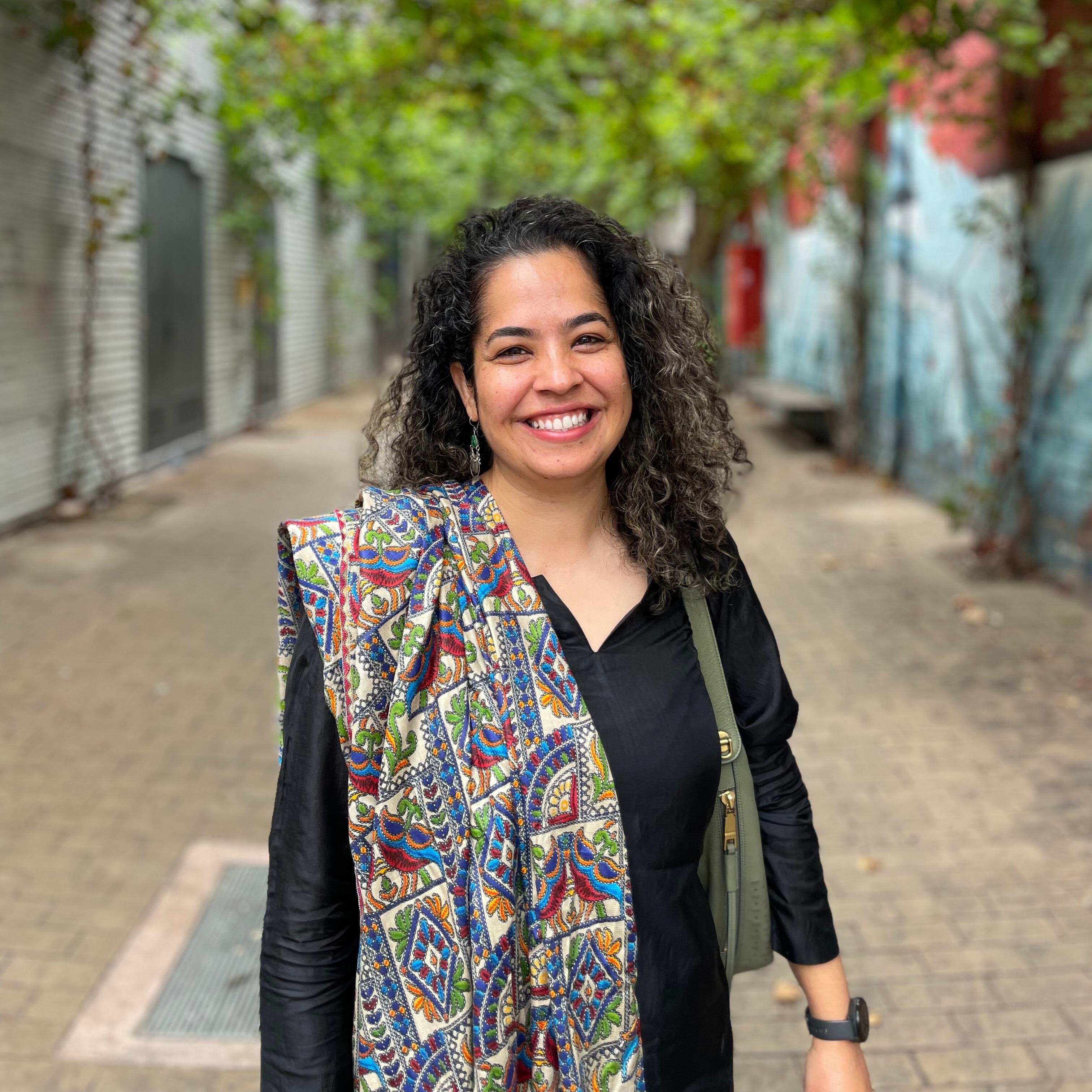Jasmeet Kaur Sahi, a Melbourne-based writer, editor, and arts programmer, is dedicated to amplifying diverse voices and exploring cultural intersections. As an editor at SAARI Collective and a contributor to platforms like The Big Issue and Cordite Poetry Review, her work reflects a deep engagement with community and storytelling. In the lead-up to the Sounds of Australia festival, Jasmeet spoke with Adrian McNeil to explore the meeting points between Hindustani and Western music, offering a glimpse into the rich dialogue between these traditions.
Performing at the premiere of Kate Tempany’s Wimmera-Mallee at the ANAM end of year Chamber Music Festival, Sounds of Australia, sarod player and ethnomusicologist Adrian McNeil brings his decades-long scholarship in Hindustani music alongside a quintet of ANAM musicians in what will be a compelling concert bringing together Western and Hindustani musical traditions to lend voice to Kate’s depiction of her beloved Wimmera-Mallee region.
 Photo Credit: Jasmeet Kaur Sahi
Photo Credit: Jasmeet Kaur Sahi
Part of the final concert series of the festival, Sacred Sky, on 30 November, the collaboration will see the musicians play the score which is set in seven movements with Adrian on the sarod (a plucked string instrument common to the Hindustani music tradition of northern India) and a string quintet of ANAM musicians composed of a double bass, a viola, cello and two violins.
Adrian is no stranger to collaboration and has worked on projects over the years which have taken him across the globe and also land an ARIA finalist nomination for Improvisations by Rasa Duende, a trio he is part of alongside musicians Bobby Singh (tabla) and Damian Wright (Flamenco guitar) that explores meeting points between Hindustani and Flamenco music.
“It’s about finding midway points, or points of where there could be good communication. Over the years, I've worked with different people and musical traditions and again, you find the meeting points … where a conversation can happen,” he shares.
 Photo Credit: adrianmcneil.com
Photo Credit: adrianmcneil.com
This collaboration with Kate comes as a result of a long friendship and shared scholarship in Hindustani music.
“I’ve known Kate for maybe 30 years. I supervised her Honor’s thesis and also talked during my time at Melbourne University, where she is doing a PhD. I’ve known her through the Hindustani music scene in Melbourne. So, we have a sort of shared background and shared experiences.”
“So that's how this started a couple years ago, and since then, we’ve been having discussions and talks about what's possible and what are the meeting points to explore. There's been series of conversations and sessions where we've sat together and tried to work out how to do things,” he adds.
But collaboration comes with its challenges, and for Adrian this has been the significance of this collaboration that through its challenges have come opportunities to further the study of his prized instrument – the sarod – and expand his abiding research into intercultural musical expression.
He speaks of the raag (anglicised as raga in English) which is a melody used to express a certain feeling, a precise arrangement of notes in ascending or descending order and there are several raags in Hindustani music having their own vocabulary, grammar and arrangements of notes – things get complex and as a result intricate and delightful when the musician also has a part to play in the arrangement of the notes in a raag, which in turn changes the structure and performance of it. A feat Adrian adds, he has seen been done by maestros and something he has had to work through in the making of this collaboration with the choice of raag being Yaman.
“So, the significance is that I've been developing new skills, which have been part of Hindustani music, but they're not things which I’ve been challenged to use before.”
“The technical side of things has opened up a new world. I've been talking to one of my teachers, Sanjoy, about this, and we've been playing around with this. So, it's gone into my lessons. It's gone into my thinking that way,” he adds.
The opportunity to work in a way where the felt and measured, yet notated aspects of Western music come in collision and collusion with the expansive arrangements and embodied notations of Hindustani music has been a generative experience.
Working in what he calls a shared environment with the ANAM musicians has been crucial to developing and working on the score that Kate has set for them.
“They're very, very talented, and are good musicians because they really think and work in an open and collegial way,” he says.
The Sounds of Australia Chamber Music Festival runs from November 28-30, 2024.
Words by Jasmeet Kaur Sahi, in conversation with Adrian McNeil
Photo credit for Jasmeet's portrait: Zoe Jones
ANAM CHAMBER MUSIC FESTIVAL: SOUNDS OF AUSTRALIA
Thu 28 Nov 7pm
Fri 29 Nov 7pm
Sat 30 Nov 3pm
Sat 30 Nov 7pm
Venue Rosina Auditorium, Abbotsford Convent
Tickets from $20
Bookings anam.com.au or 03 9645 7911

